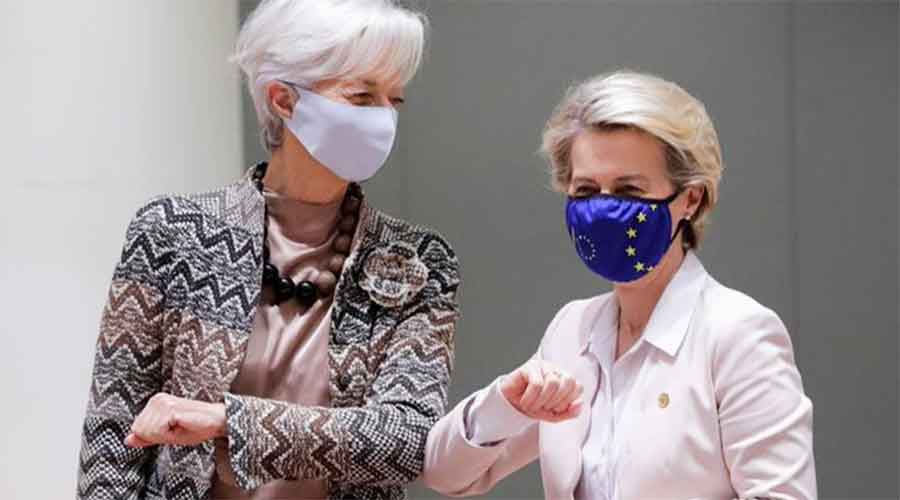After an all-night negotiating session, European Union leaders agreed on Friday morning to cut net carbon emissions by 55 per cent in the next decade from levels measured in 1990, overcoming the concerns of nations still heavily dependent on coal and taking a critical step in the effort to become climate-neutral by 2050.
European leaders, who are keen to position themselves as at the forefront of the global fight against climate change, had failed in October to reach a deal on an even less ambitious target of 40 per cent.
But after an agreement on a $2.2-trillion budget on Thursday evening — with billions earmarked for member states to spend on the transition to a greener economy — momentum for a consensus environmental policy gathered speed.
Shortly after dawn, Charles Michel, the head of the group of the EU leaders, announced the news on Twitter. “Europe is the leader in the fight against climate change,” he wrote. “We decided to cut our greenhouse gas emissions of at least 55 per cent by 2030.”
The decision on the new target comes just in time for the United Nations climate summit this Saturday, where it will be announced by Ursula von der Leyen, the president of the European Commission, the bloc’s executive arm.
Chancellor Angela Merkel of Germany said it was “worth losing a night’s sleep” over the climate deal.
“I don’t want to imagine what would have happened if we hadn’t been able to achieve such a result,” she said during a news conference on Friday, following the meeting.
Still, the details and the language in the agreement were kept vague after many hours of often tense negotiations, leaving it up to the commission to hammer out the specifics.
The overnight discussions on climate, which has been declared as one of the European Union’s top priorities, have been obstructed by the familiar divisions between the wealthier western European countries pushing for more ambitious targets, and a handful of eastern European states, led by Poland, that depend heavily on coal.
They fought for more detailed provisions on how Brussels would support them in the transition, asking for the new rules to take differing circumstances into account.
In a gesture toward eastern European governments, the EU leaders decided the target has to be reached by the bloc collectively — effectively giving coal-dependent countries more time to transition their energy consumption. For the first time, emissions from forests and land use will be included in the target, which climate activists say might weaken the outcome.
The legal provisions that would ensure compliance still need to be worked out in the coming months and the agreement has to be endorsed by the commission and the European Parliament.
The New York Times News Service











